We got it.
Thank you for contacting us.We’ll get back to you as soon as possible.
How to Master E-E-A-T When the Owner Prefers Anonymity: Does the CEO Need a Spotlight?
By Doug Mansfield • September 29, 2025

Establishing Corporate Authority Without a Figurehead
What happens when the primary source of a company's experience and expertise is a business owner who prefers to remain in the background? Google's E-E-A-T guidelines—Experience, Expertise, Authoritativeness, and Trustworthiness—have become paramount for success in both SEO and GEO. These principles are Google’s way of ensuring that users receive information from credible, reliable sources. So, How do we Demonstrate Experience and Expertise without citing the owner or CEO?
Balancing Authority with Anonymity in the Age of AI
In the ever-evolving landscape of digital marketing, Google's E-E-A-T guidelines, Experience, Expertise, Authoritativeness, and Trust, have become paramount for success in both Search Engine Optimization (SEO) and Generative Engine Optimization (GEO). These principles are Google’s way of ensuring that users receive information from credible, reliable sources.
But what happens when the primary source of a company's experience and expertise is a business owner who prefers to remain in the background? It's a common scenario. Many successful entrepreneurs value their privacy and choose to let their brand speak for itself. While there is nothing inherently wrong with this approach, it presents a unique challenge in the age of E-E-A-T.
The "E-E" Challenge: Can Anonymity Hurt Compliance?
The first two letters in E-E-A-T, Experience and Expertise, are crucial. Google wants to see content created by people with demonstrable, first-hand knowledge of the subject matter. When a business operates without a visible, authoritative figurehead who shares content and speaks for the company, it can be harder to send these critical signals.
In a digital world increasingly saturated with AI-generated content, proving that a real human expert is behind your information is more important than ever. An anonymous or faceless brand risks having its content perceived as less trustworthy by search engines, potentially harming its ability to rank and appear in generative AI results.
However, a private owner doesn't mean your business is destined to fail at E-E-A-T. The key is to shift the focus from a single individual to the collective authority of the entire organization.
7 Ways to Thrive in SEO and GEO with an Anonymous Owner
You can absolutely build a powerful, authoritative online presence that complies with E-E-A-T without putting the owner in the stage lights. Here are several effective strategies:
- Spotlight Your Team's Expertise
- Your team is your greatest asset. Instead of focusing on one person, showcase the collective expertise within your company.
- Create detailed author bios for key team members, such as lead engineers, senior consultants, or department heads. Include their photos, years of experience, certifications, and links to their LinkedIn profiles.
- Attribute blog posts, white papers, and guides to these specific experts, not a generic "company" author.
- Leverage Customer Stories and Case Studies
- Nothing demonstrates real-world experience better than showcasing your successes.
- Publish detailed case studies that outline a customer's problem, your solution, and the tangible results. Use client names and data (with permission) to build credibility.
- Feature video testimonials where clients speak about their positive experiences. This adds a powerful, human element of trust.
- Build a Comprehensive "About Us" Page
- Your "About Us" page is a prime opportunity to tell your company's story and build entity-level trust.
- Go beyond a generic mission statement. Detail the company's founding story, the collective experience of the leadership team (without needing to single out the owner), and the core values that drive your business.
- Showcase Third-Party Verification
- Third-party validation is a powerful signal of trustworthiness.
- Prominently display industry awards, certifications, and professional memberships.
- Encourage customer reviews on trusted platforms like Google Business Profile, Clutch, or industry-specific sites.
- Develop Branded, Data-Driven Content
- Position your brand as the expert by creating unique, authoritative content that can't be found anywhere else.
- Publish original research, industry surveys, or annual reports. This establishes your company as a primary source of information.
- Create proprietary tools, online calculators, or frameworks (like our FADA® Marketing Framework) that become synonymous with your brand name.
- Empower Experts to Be the Face of the Company
- While the owner may stay behind the scenes, other experts can step forward.
- Have your subject matter experts host webinars, speak at industry events, or appear on podcasts . This links their individual expertise back to your brand's authority.
- Solidify Your Foundational Trust Signals
- Ensure your technical and local SEO signals are strong and consistent.
- Use schema markup ("author" and "organization") to clearly define for search engines who is creating the content and who the brand is.
- Maintain consistent
- NAP+W (Name, Address, Phone, Website) information across all online directories and business listings to build foundational trust.
Ultimately, a business owner's preference for anonymity is not a roadblock to E-E-A-T success. By strategically showcasing the expertise of your team, leveraging social proof, and creating brand-level authority, you can build the trust necessary to thrive in today's competitive digital landscape.

Written by Doug Mansfield | President, Mansfield Marketing
Connect with Doug Mansfield on LinkedIn














